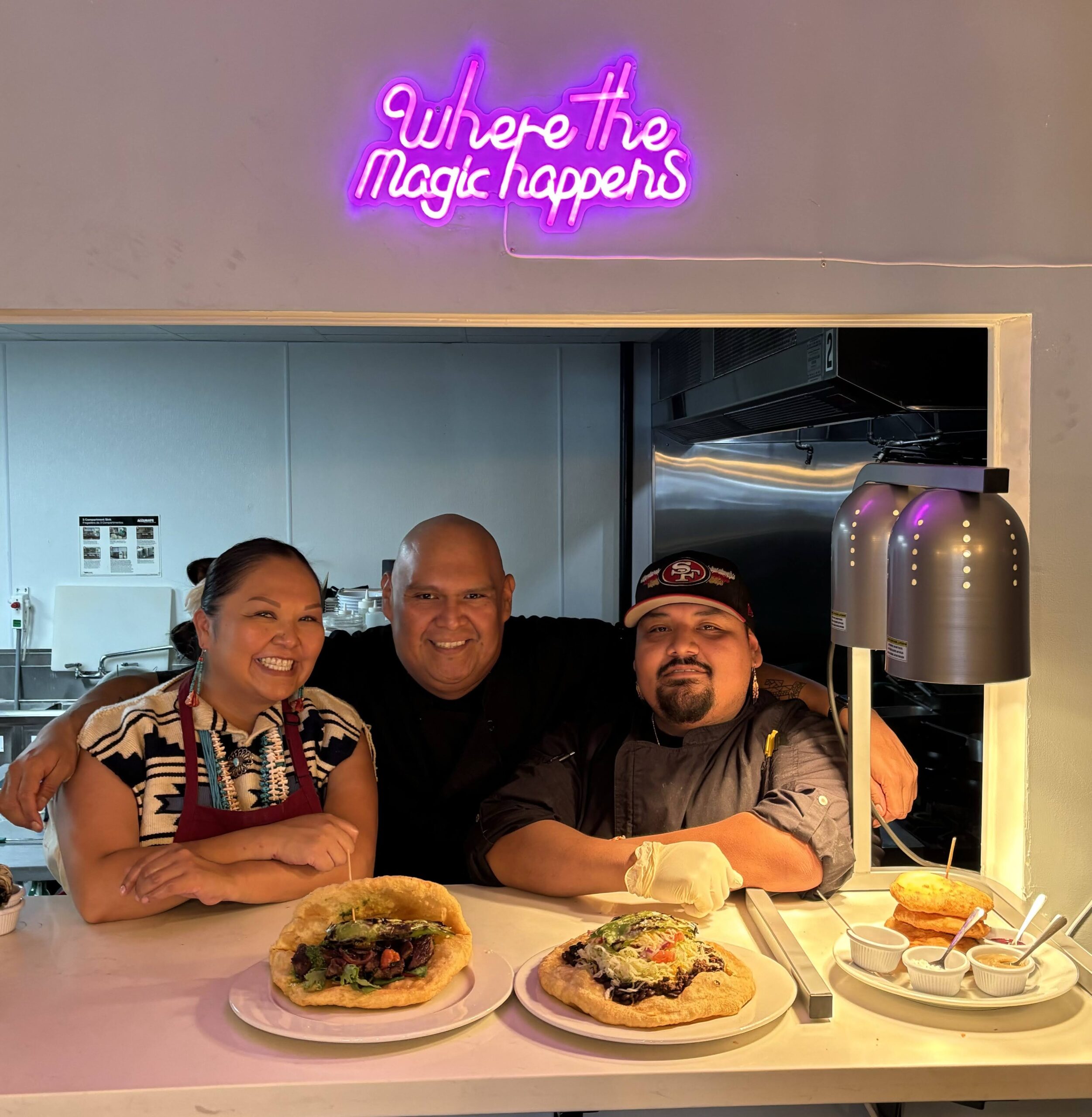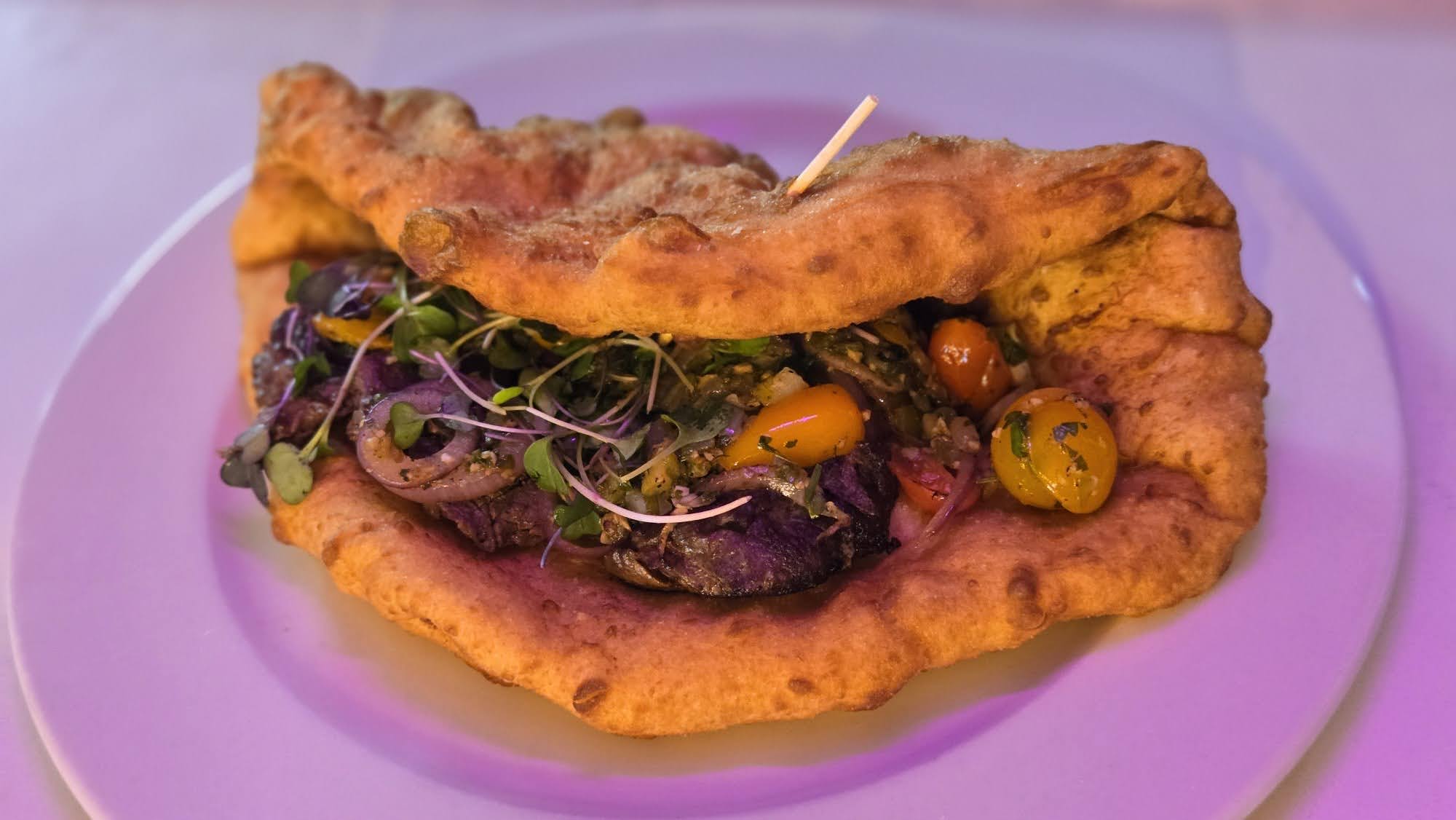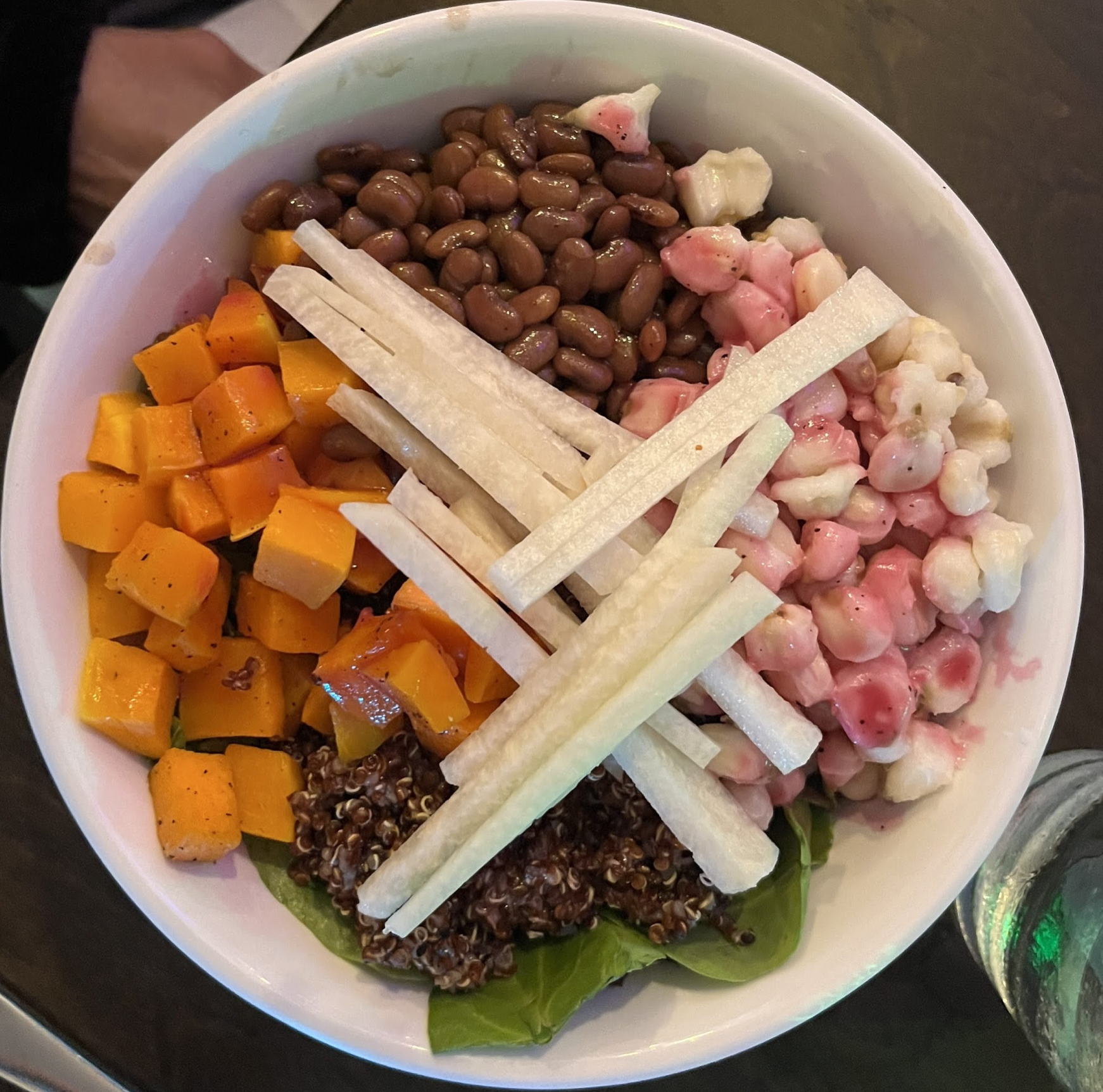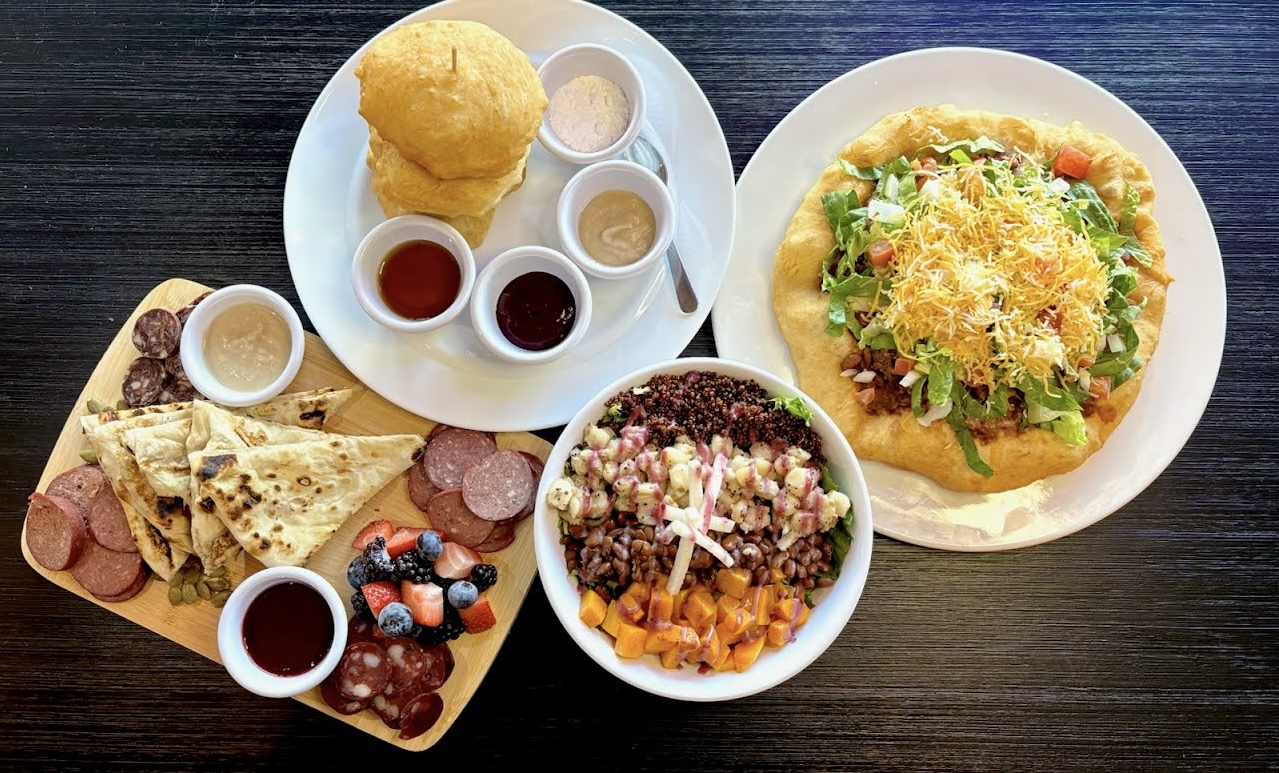NORTH STARS:
Gender Equality
Heritage Value
Production & Consumption
“Our whole goal for both the art market and restaurant is to give representation and opportunity for indigenous producers in Scottsdale. We want to create a safe space for Native businesses and food producers to sell to the public.”
The Azure Road Take
In 2018, Heather Tracy and her mom Denise Rosales realized a lifelong dream of creating a space in Scottsdale for Indigenous artisans to sell their crafts. In August 2024, six years after opening the Native Art Market in Old Scottsdale, this Arizona Navajo Nation family opened the Frybread Lounge restaurant next door.
“Our whole goal for both the art market and the restaurant is to give representation and opportunity for Indigenous producers in Scottsdale,” says co-owner Heather Tracy. “We want to create a safe space for Native businesses and food producers to sell to the public.”

Celeste Deschene, frybread maker; Executive Chef Darryl Montana; Chef Ty Hendricks. Courtesy of The Frybread Lounge.
Sustainability Chops
Providing a platform to share Native culture through food was a natural extension of the art market. For expert guidance, Tracy and Rosales hired Chef Darryl Montana from Owamni, a Minneapolis Indigenous restaurant headed by award-winning chef Sean Sherman. Montana, an Arizona native and member of the Tohono O’odham Nation, returned home to helm the Frybread Lounge.
High protein, fiber-rich tepary beans figure prominently on the menu. The hearty legumes are sourced from Ramona Farms, a Pima Indian-owned farming operation on the Gila River Indian reservation south of Phoenix. The heirloom, non-GMO beans are grown without pesticides and herbicides, honoring cultivation methods used for over a thousand years by Natives of the Sonoran Desert. By using heirloom tepary beans, the Frybread Lounge contributes to the survival of an important Indigenous ingredient.
Familiar modern dishes like charcuterie boards, tacos, burgers, and bowls are infused with traditional native bison, hominy, frybread, beans, and elk. This approach gives diners unfamiliar with Indigenous culture an entry point through food.
The bar menu showcases women-owned and organic distilleries from the Southwest and Mexico. Zero-proof options include sweet grass tea blended with organic fair-trade herbs and traditional New Mexican piñon coffee.

Bison Frybread. Photo courtesy of The Frybread Lounge
The Bite
The Three Sisters Salad is based on a Native American tale of vegetables growing in unity like sisters in a family.
“Squash, corn, and beans were all grown together; the corn gave shade to the squash; the squash provided nutrients to the beans, and they all thrived,” explains Montana.
The Frybread’s salad layers quinoa, butternut squash, hominy, beans, and jicama over greens for a fusion of flavors and textures. Prickly pear vinaigrette adds a splash of color and flavor.
You’ll find several other non-meat options on the menu, like wild mushroom tacos on local blue corn tortillas, and calabacitas (squash and tomatoes) on wild rice. Vegetarian dishes figure prominently, because hunters weren’t always successful, and foraging was important in the Native diet.
And of course, I had to try the frybread. Our table shared the frybread flight, a stack of warm, puffy rounds with a selection of dipping sauces, including a sweet prickly pear syrup and savory white bean spread.
Another option, the frybread taco, is a dinner plate-sized frybread topped with bison chili, which has a more intense meaty flavor than traditional ground beef. You’ll also find a bison burger served on frybread and a bison ribeye sandwich.

The Three Sisters Salad at the Frybread Lounge
Origin Story
The Frybread Lounge seeks to strengthen the Indigenous community by sourcing ingredients from native producers beyond Arizona. Chilies from South America, elk from Montana, wild rice from Minnesota, and piñon coffee from New Mexico all travel on “an inner tribal food highway” and onto your plate, as Montana described it.
Restaurant Vibe
The interior is casual and playful, with puffy clouds, colored twinkling lights, and hanging flower garlands. Located adjacent to the Native Art Market, it’s easy to experience an Indigenous shopping and dining excursion in one stop.
Native artwork hangs on the walls above the black banquettes, honoring the restaurant’s mission to be a platform for Indigenous creators of all genres. Even the custom salt and pepper shaker holders are produced by a local Navajo artist.
Featuring mostly Indigenous artists, rhythmic acoustic music adds to the ambiance. A splash of pop music continues the traditional-meets-modern vibe.



